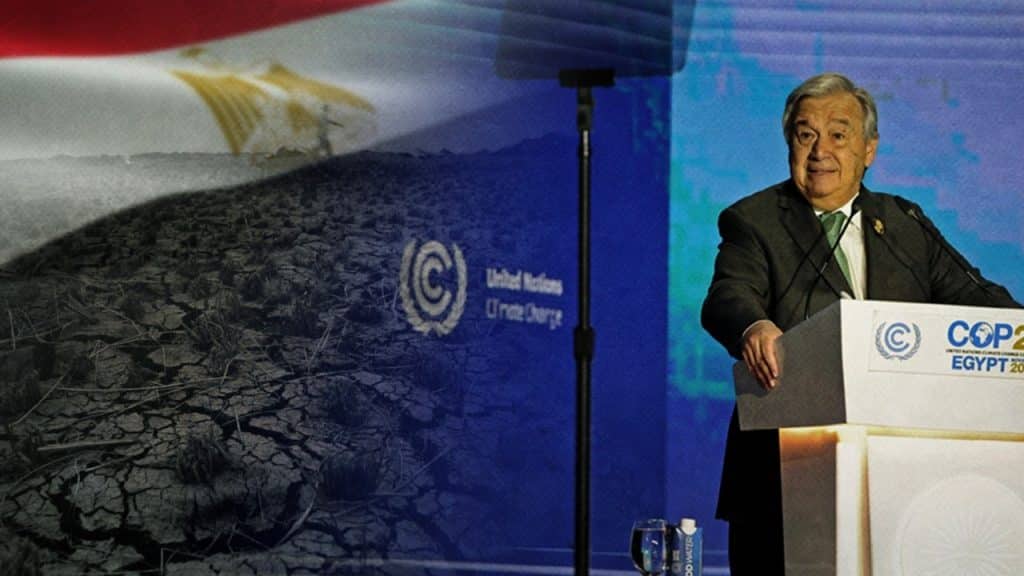
COP27 is held in Sharm El-Sheikh, Egypt, and marks 30 years since the United Nations Framework Convention on Climate Change (UNFCCC) was adopted and seven years since the Paris Agreement was agreed at COP21.
The UN climate conference in Egypt until November 18 has a lot to discuss; from financing the clean energy transition to protecting the world’s forests and preparing cities for the future.
World leaders met Monday amid a sea of other pressing challenges that threaten to roll back already inadequate measures to wean the global economy off fossil fuels.
Read more: 2007 iPhone 1 is sold for over $40,000 at an auction
The Intergovernmental Panel on Climate Change (IPCC), the world’s leading scientific authority on climate change, says the world is now in extraordinarily dangerous territory.
Every small delay in adopting proportionate mitigation and adaptation measures is one more step towards irreparable damage to the climate and its ability to meet human needs.
About half of the world’s population is «highly vulnerable» to the effects of climate change, and people in highly vulnerable regions are already 15 times more likely to die from floods, droughts and storms compared to regions of very low vulnerability.
Read more: Elon Musk issues a statement on Twitter itself explaining why he acquired it.
The global average temperature has already risen 1.1 degrees Celsius compared to pre-industrial levels. This has already exacerbated extreme weather around the world.
This year alone, extraordinary heat has seared the northern hemisphere and caused a severe drought in China, while catastrophic floods have destroyed property and lives in Nigeria and Pakistan.
«If political leaders mean what they say, they must act in a new way,» Johan Rockstrom, director of the Potsdam Institute for Climate Research, said late Monday. «To live up to their words, policymakers must immediately reduce the use of fossil fuels in their own countries.»
A major point of frustration and anger among developing countries at COP26 was the failure to deliver on promises of regular climate finance.
Environmental and development organizations refer to the «polluter pays» principle when discussing the issue, which is discussed under the banner «Loss and Damage»: Although the industrialized countries are the main culprits of global warming, the poorer countries would be the ones who would suffer the most. Damage already amounts to tens of billions of euros.
Read more: New Zealand has proposed cow-burps taxes to reduce emissions
Fearing that they will be forced to pay infinitely high reparations, industrialized countries, especially the US, have in recent years blocked negotiations on financial aid for climate-related damage and loss.
The biggest fault line in these talks is the contentious issue of who pays for the climate damage wreaking havoc in countries that have done the least to cause global warming.
Various blocs of developing countries have been pushing for rich, industrialized countries to pay what could be a trillion dollars.
The president of Nicaragua, Daniel Ortega, indicated that the UN Secretary General «must have the courage to say that what has been carried out since colonial times is a crime, and that over time the destruction and exploitation has been dragging towards the African, Asian, Latin American and Caribbean peoples to the point of damaging the environment”.
On Sunday there was a small breakthrough, for the first time, the issue of financing loss and damage is on the official agenda.
At COP27, developing countries hope that historic promises will be fulfilled, such as the 100 billion dollars per year in climate finance that developed countries were supposed to contribute each year, from 2020 to 2025, but which have not been fulfilled so far.
Read more: Climate change made this summer’s drought 20 times, and deadly floods 20% more likely to happen
Although rich countries face financial challenges at home with prospects of recession, rising energy and food prices, and citizens struggling to cope with cost-of-living crises, it is important that climate finance for developing countries do not lose priority.
Loss and damage refer to the destructive impacts of climate change that cannot be avoided by either mitigation or adaptation.
Developing countries, which contribute the least to climate change, seek financial support for the cost of loss and damage from developed countries, whose current and historical activities have greatly contributed to the climate crisis.
This meeting is being held in a convention center heavily patrolled by the Egyptian military, with unusually tight security restrictions that basically prevent any manifestation of dissent.





